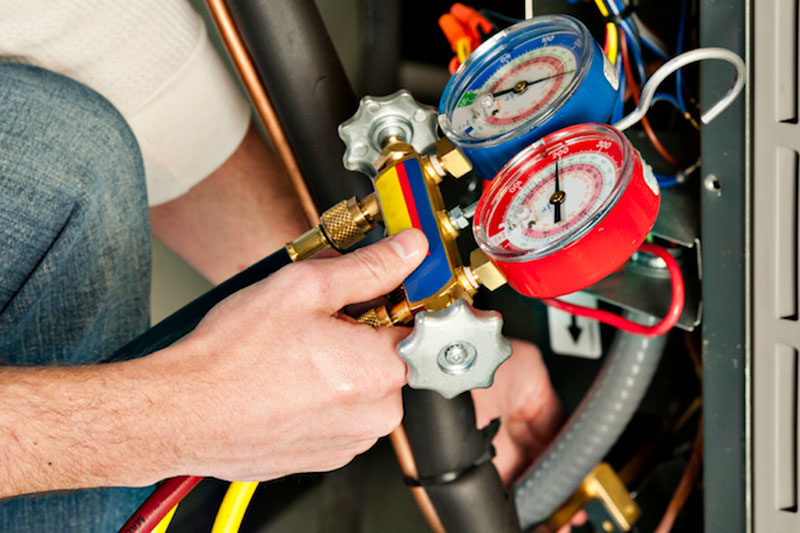
You might not think a lot about how your air conditioner works, but it relies on refrigerant to keep your house fresh. This refrigerant is bound by environmental rules, since it contains chemicals.
Depending on when your air conditioner was put in, it may use R-22, R-410A or R-32 refrigerant. We’ll discuss the differences and which air conditioner refrigerants are being phased out in Richmond, as well as how these phaseouts impact you.
What’s R-22 and Why Is It Phased Out?
If your air conditioner was added before 2010, it possibly contains Freon®. You can find out if your air conditioner contains it by calling us at 778-693-2532. You can also look at the name plate on your air conditioner condenser, which is situated outside your house. This sticker will have details on what kind of refrigerant your AC has.
Freon, which is also called R-22, contains chlorine. Scientists consider R-22 to be harmful to the earth’s ozone layer and one that contributes to global warming. The Environmental Protection Agency, which manages refrigerants in the United States, barred its manufacture and import in January 2020.
I Have a R-22 Air Conditioner. Should I Replace It?
It differs. If your air conditioning is running correctly, you can continue to use it. With routine air conditioner maintenance, you can expect your AC to run around 15–20 years. However, the Department of Energy reports that replacing a 10-year-old air conditioner could save you 20–40% on summertime cooling bills!
If you don’t get a new air conditioner, it may lead to difficulties if you require air conditioning repair down the road, specifically for refrigerant. Repairs may be more expensive, because only reduced amounts of recycled and reclaimed R-22 is accessible.
With the end of R-22, many new air conditioners now rely on Puron®. Also called R-410A, this refrigerant was created to keep the ozone layer strong. As it needs a different pressure level, it doesn’t match air conditioners that rely on R-22 for cooling.
However, Puron still has the likelihood to create global warming. Because of that, it might also eventually be ended. Although it hasn’t been disclosed yet for residential air conditioners, it’s likely sometime this decade.
What Refrigerant Will Take the Place of R-410A?
In preparation of the phaseout, some companies have begun using R-32 in new air conditioners. This refrigerant ranks low for global warming potential—approximately one-third less than R-410A. And it also lowers energy use by approximately 10%, according to the Intergovernmental Panel on Climate Change’s Fourth Assessment Report. That’s savings that might be forwarded on to you through your energy expenses.
Refrigeration Systems Ltd. Can Assist with All Your Air Conditioning Needs
In brief, the modifications to air conditioner refrigerant probably won’t impact you greatly until you have to have repairs. But as we talked about beforehand, refrigerant-related repairs can be pricier due to the low quantities available.
In addition to that, your air conditioner typically malfunctions at the worst time, often on the muggiest day when we’re getting many other calls for AC repair.
If your air conditioner requires an outdated refrigerant or is aging, we advise upgrading to a modern, energy-efficient air conditioner. This provides a hassle-free summer and may even decrease your cooling expenses, especially if you choose an ENERGY STAR®-rated model. Plus, Refrigeration Systems Ltd. has many financing solutions to make your new air conditioner fit your budget. Contact us at 778-693-2532 to start now with a free estimate.
